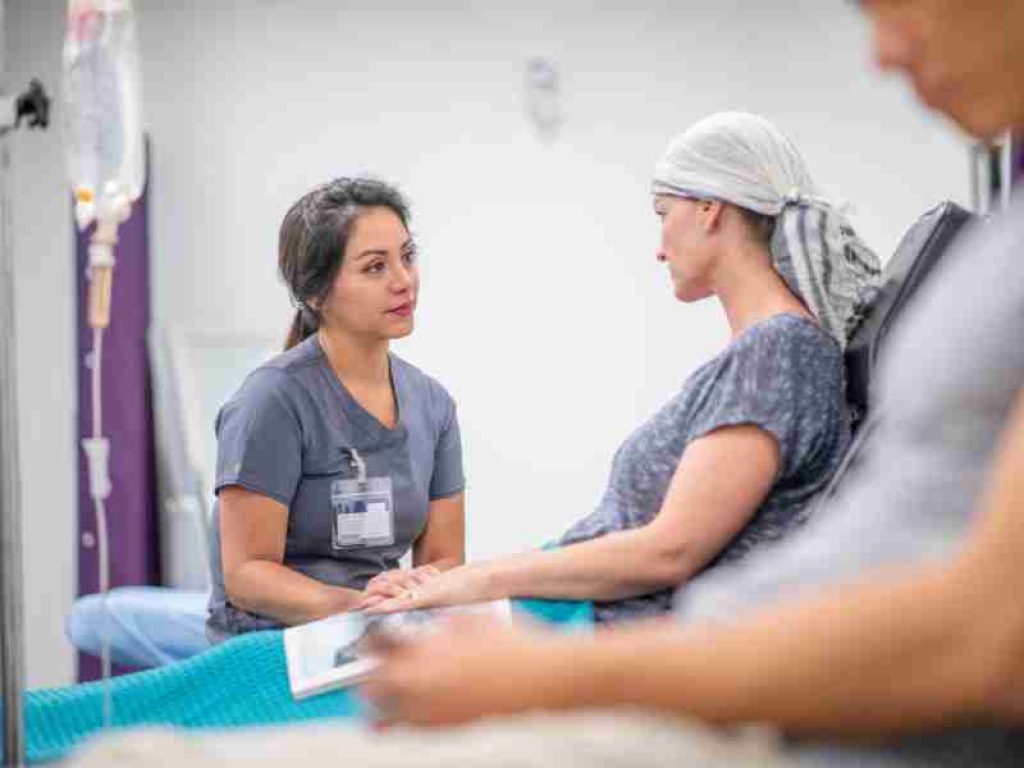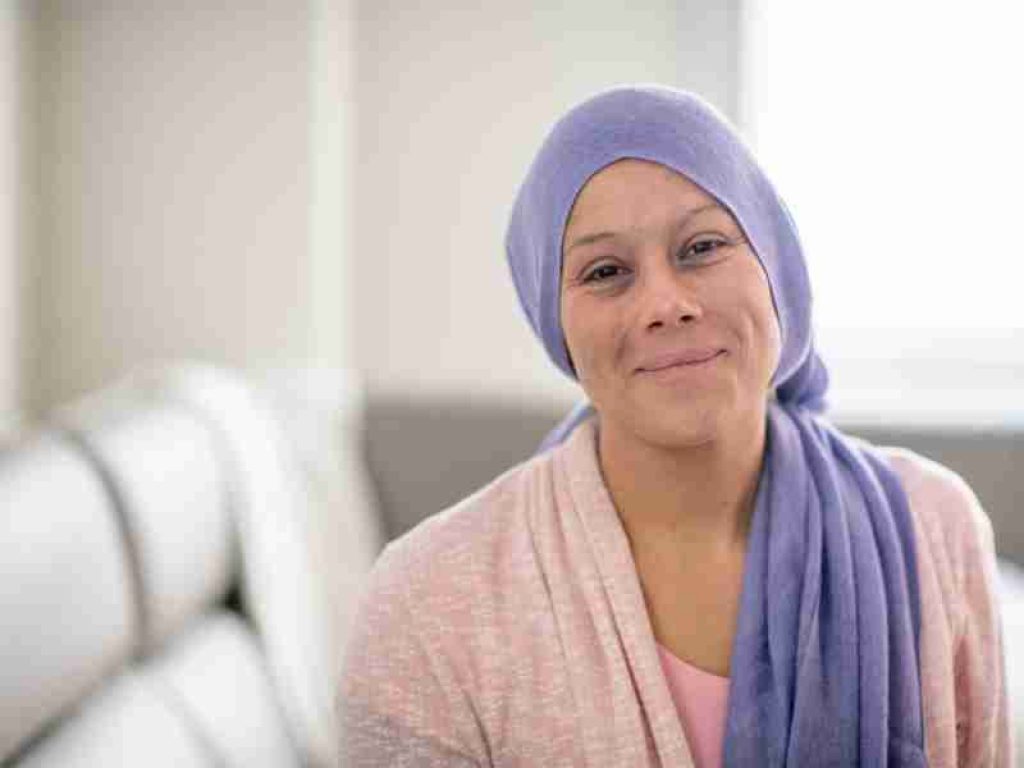
How To Become An Oncology Nurse Practitioner?
Learn how to become an Oncology Nurse Practitioner?, as well as about their unique job responsibilities, salary, and educational requirements.
What is an Oncology Nurse Practitioner?
Oncology-specific nurses and nurse practitioners are in particularly high demand. These doctors, nurses, and other medical staff members have completed specific training in cancer prevention, diagnosis, and treatment. An oncology nurse practitioner is a highly rewarding and advanced role in the nursing field.

Read on to learn about the nurse of an oncology nurse practitioner, the abilities needed to succeed in this practitioner, the typical compensation, and the steps necessary to enter this field.
What are the duties and responsibilities of Oncology Nurse Practitioners?
An Oncology Nurse Practitioner is an Advanced Practice Registered Nurse that specializes in giving care to cancer patients, like diagnosis and management. Unlike regular RNs, nurse practitioners have the authority to prescribe drugs, order diagnostic tests, and carry out complex therapeutic procedures.
They frequently assist physicians and surgeons in the diagnosis and care of patients. Additionally, they provide counsel and emotional support to caregivers throughout and beyond the course of treatment. Oncology nurses provide diagnoses, treatments, and education for patients at various locations, including hospitals, specialized clinics, cancer therapy centers, outpatient care facilities, primary care practices, and private residences.
They are everywhere chemotherapy is administered, including intensive care units, infusion facilities, and designated oncology units. Depending on their workplace, they may be responsible for a wide range of patient care and support-related activities. Typically, these include:
- Checking for cancer and other diseases through physical examinations.
- Identifying whether a patient has a limited or extensive medical history.
- Cancer detection, including classification and staging.
- Informing sufferers and their loved ones on the illness’s nature and prognosis.
- To give chemotherapy or other therapies.
- Keeping tabs on patients to ensure they are doing okay and handling any side effects from chemotherapy.
- Drug prescriptions.
- Managing the administration of intravenous medications.
- Establishing pain-controlling routines.
What are the abilities of a nurse practitioner in oncology?
Professionals in the field of oncology nurses typically possess both the technical and interpersonal abilities necessary to provide excellent care to patients with life-threatening illnesses. Successful nurse practitioners typically exhibit the following skills:
Interpersonal:
These medical workers meet with a wide range of people daily, from patients and their loved ones to doctors and nurses. They contribute constructively to group efforts, are easy to talk to and keep a sunny disposition.
Leadership:
Oncology nurse practitioners frequently hold administrative and supervisory duties over other healthcare professionals. They are effective leaders, especially when teaching nurses how to treat patients.
Communication:
Clear and accurate communication between nurse practitioners and physicians regarding patient status and treatment strategies is essential. Additionally, they can educate patients and their families clearly and concisely about cancer and treatment plans.
Empathy:
Practitioners in oncology nurse care deeply about their patients. They treat their patients with compassion and empathy, and they communicate well with the patient’s loved ones.
Decision-making:
These nurses can decide the course of treatment for their patients. In many cases, they can think critically and make sound conclusions rapidly.
Observation:
Nurse practitioners specializing in oncology have keen observational skills and may detect even the most minor changes in a patient’s health.
Teamwork:
The oncology and interprofessional teams must work together to guarantee that the patient receives appropriate care and treatment. Outpatient services such as nutritionists, physiotherapists, occupational therapists, surgeons, and primary care physicians are all potential interdisciplinary team members.
Depending on the stage and severity of the malignancy, additional specialists may be needed in an inpatient setting. The oncology nurse practitioner (NP) will be instrumental in coordinating the efforts of all interdisciplinary care team members.
Personal and Career Growth:
Oncology nurses need to be self-motivated and interested in learning new things. Setting and regularly reviewing professional goals is an effective strategy for career development.
Therapy in the Clinic:
The oncology NP must adhere to the principles of evidence-based medicine and keep up with the latest developments in the healthcare industry. The quality of the NP’s care can be guaranteed by using evidence-based practices. Competence in offering cancer care and employing critical thinking skills are important for excellent clinical care.
Financial:
The oncology nurse practitioner must exercise fiscal responsibility in all aspects of their work. The oncology NP must be proficient in billing, coding, and efficient supply management. Further, the patient should be given access to resources to ease the financial strain that medical visits, tests, and treatment plans might cause.
Quality:
The oncology nurse practitioner should always aim to provide excellent treatment. To guarantee the patient is receiving high-quality care, providers must be familiar with relevant guidelines, standards, and criteria. Most of the time, this is accomplished by coordinated efforts among multiple professions.
How to become an oncology Nurse practitioner?
Registered nurses must undergo extensive postgraduate education in cancer care to practice as oncology nurse practitioners.

If you want to specialize in oncology, here’s what you need to do to become a nurse practitioner.
A Bachelor’s degree in Nursing:
Obtaining a BSN from a recognized nursing program is typically required for cancer nurse practitioner positions, while some employers may consider candidates with an ADN. The average time to graduate from one of these courses is three to four years. If you are already an RN or LPN, you can complete your BSN quickly by enrolling in a bridge program. Vocational nurses who have already earned an ADN can take advantage of BSN-to-BSN bridge programs.
To become an RN, you must get a license:
Registered nurse practitioners also hold a doctoral degree and specialty certification. To practice nursing in the state of your choice, one must first pass the NCLEX-RN, a test administered by the National Council of State Boards of Nursing. This license will then be provided to you by the nursing board. This evaluation shows your dedication to nursing and how well you’ve prepared for a future in the field.
Get your master’s degree:
To become a nurse practitioner, one must also complete a Master of Science in Nursing (MSN) program, typically taking around two years to complete. Look for BSN or RN-to-MSN programs that have an oncology track accredited by the Commission on Collegiate Nursing Education or the Accreditation Commission for Education in Nursing. In oncology-focused MSN programs, you can expect to learn about the following:
- Risk evaluation for cancer.
- Cancer detection and prevention.
- Diagnosing and treating various forms of cancer.
- Impact of cancer treatment on Quality of Life.
- Patient and family education and emotional support.
- End-of-life care.
To become an APRN, obtain certification:
Most states allow RNs to advance to nurse practitioners by obtaining an APRN licensure from their respective nursing boards. It would help if you had a Master of Science in Nursing and a certain number of hours of clinical experience, preferably in an oncology setting before you can sit for the APRN exam.
APRN certification is provided by the American Academy of Nurse Practitioners Certification Board, and the American Nurses Credentialing Center offers APRN certification, both nationally recognized. You should keep your RN license in good standing to get your APRN license.
Get your oncology certification:
The final need for oncology nurse practitioners is to earn certification from the Oncology Nursing Certification Corporation (ONCC). You must pass this exam and gain Advanced Oncology Certified Nurse Practitioner (AOCNP) accreditation to demonstrate your ability to deliver excellent care to cancer patients. Certifications are a requirement for employment at many healthcare facilities.
Make an effort to fulfill the following prerequisites for this certification:
- Be currently registered as a nurse.
- Hold a Master of Science in Nursing.
- Two years of experience as a registered nurse.
- Have worked as an oncology nurse for a minimum of two years.
- Complete ten or more hours of cancer nursing CE.
If you want to specialize in a specific cancer or patient population, consider getting additional ONCC certifications such as Certified Breast Care Nurse, Certified Pediatric Hematology Oncology Nurse, Blood and Marrow Transplant Certified Nurse, and Certified Pediatric Oncology Nurse. This can help sharpen your skills and open up more job prospects.
Continue your education:
Healthcare professionals certified as oncology nurses must renew their certifications every four years and fulfill the required number of continuing education hours to keep their licenses valid. The ONCC and other professional groups offer ongoing training and education options.
- Oncology Nursing Society.
- The International Association of Cancer Nurses.
- Gynecologic Oncology Nurses Association.
- To learn more about hospice and palliative care.
- Association of Pediatric Hematology Oncology Nurses.
Organizations like this typically provide members access to a plethora of learning materials, including workshops, conferences, trade magazines, and the opportunity to connect with others in their field.
Where do oncology NPs work?
Given the breadth of their training, Oncology Nurse Practitioners can find employment in a wide range of settings, from primary care to hospice. Oncology nurse practitioners (ONPs) are licensed medical doctors specializing in cancer treatment methods like radiation oncology, chemotherapy, and surgery.
They can work in:
- Clinics
- ·Hospitals
- Long-term care facilities
- Outpatient care centers
- Private practices
What are the typical working hours for an oncology nurse practitioner?
The decision to pursue an oncology nurse practitioner career can pay off in many ways. An improved work schedule that is more consistent is one advantage. An oncology nurse practitioner’s regular work schedule is work-dependent. As a rule, an oncology nurse practitioner (NP) in a clinic setting will work a full week, Monday through Friday, from 8 a.m. to 5 p.m. In most cases, a nurse practitioner (NP) specializing in oncology will not be required to work on weekends or holidays.
An oncology nurse practitioner can work in a healthcare facility. While an oncology inpatient nurse practitioner (NP) might work 12-hour shifts, they typically only work three or four days a week. Depending on where they work, they might also be expected to put in time on the weekends or holidays. Regardless of the industry, there is always the possibility of being required to work on-call.
What is the duration needed to become an oncology nurse practitioner?
Earning a degree in oncology nursing is a lengthy process. On average, it takes 7-10 years, plus another year or two, to get your doctorate in nursing practice (DNP). A Bachelor of Science in Nursing degree can be earned in four years. The Master of Science in Nursing (MSN) program afterward can take anywhere from two more years to four, depending on how frequently you attend classes and how much time you devote to each class every week.
If you want to obtain your Doctor of Nurse Practitioner (DNP) degree, an additional 1-2 years of study is required. Lastly, you can attend a 12-month oncology fellowship program or continue your education with a post-or master’s postgraduate oncology degree that takes an additional 1.5-2 years to complete.
What is the average cost of oncology nurse practitioner courses?
The total amount you will cost to become an oncology nurse practitioner might vary widely depending on several factors. The total cost of your education will vary depending on where you live, which state you attend, and which degree program you enroll in. You need a BSN, for instance, and getting one can cost you between $40,000 and $200,000 and take four years if you go the usual route.
A public university within one’s home state will cost less than a private institution, and a private university may be just as expensive as an out-of-state resident attending a public university or college. The price difference between full-time and part-time status is significant in certain schools. Earning a BSN can be accomplished by completing an associate’s degree (ADN) and then an RN-BSN program.
The second choice could save you money, but you’ll need to talk to the colleges you’re interested in attending to find out for sure. It is also important to consider the tuition reimbursement programs that individual hospitals and healthcare facilities may have with individual schools before making final decisions and submitting applications.
What are the Certifications for an Oncology Nurse Practitioner?
Specialist in Oncology Nursing (OCN):
This is the most comprehensive oncology certification available, and it’s tailored specifically to nurses working with oncology patients aged 18 and up. You must have worked as a nurse for at least two years, with at least two thousand years spent in adult oncology. You’ll also need to participate in ongoing training, show evidence of recent classroom attendance, and pass a certification exam.
Registered Nurse, Pediatric Hematology/Oncology Certification (CPHON):
Pediatric hematological malignancies, such as leukemia and lymphoma, are the primary emphasis of this certification. To become certified, you need to have worked as a nurse for at least two years and logged 2,000 hours in the certification of pediatric oncology nursing during the last four years. You must either put in hours of continuing education or show recent classroom experience and pass an exam to participate in your certification.
Nurses Certified in Breast Care (CBCN):
Those who complete the course will be certified in breast cancer certification and safety measures. To qualify for this position, you must have worked as a nurse for at least two years and logged at least 2,000 hours in pediatric breast care in the previous four years. There is a certification to take, and you must keep your knowledge up to date.
Trained in Blood and Bone Marrow Transplants (BMTCN):
Leukemia, lymphoma, hemophilia, and some forms of solid cancer are among those treated with blood and marrow transplants, the emphasis of this certification. The minimum requirements for certification are two years of nursing experience and 2,000 hours of blood and marrow transplant nursing practice within the previous four years. Certified nurses are expected to participate in a formal education program, whether online or in a classroom, and then pass certification by passing a standardized test.
How much does an oncology nurse practitioner make?
Payscale reports that a typical yearly salary for an oncology nurse is $75,610. The BLS doesn’t collect data on oncology nurses, although it predicts a 9% increase in RN employment between 2020 and 2030. Positions for oncology nurses can be found at clinics, private practices, and public hospitals around the United States.
Working as an Oncology Nurse
An oncology nurse provides treatment and support to people at all stages of cancer. You are in charge of administering chemotherapy, figuring out how to manage patients’ problems, and keeping tabs on their improvement.

Oncology nurses, moreover, foster a cheerful environment for their patients. Breast cancer, pediatric hematology, and care for the elderly are common areas of expertise for oncology nurses. Your patients will rely heavily on you to inform them of their diagnoses, potential treatments, and expected outcomes. You’ll need to put in a lot of study time for this, as you should always aim to be one step ahead of the curve.
Because oncology nurses deal with patients typically nearing the end of their life, they need to be a particular breed of person. It takes a strong emotional foundation to be present for both the sick and their loved ones. Sometimes, no matter how hard you try, treatment will not be successful, and the patient will ultimately lose their fight.
Conclusion
To become an oncology nurse practitioner, you must have at least two years of experience as a nurse and 2,000 hours in the specialty within the last four years. You must also complete ongoing training, show evidence of recent classroom attendance, and pass a certification exam. Oncology nurses typically make around $75,610 annually and are in charge of administering chemotherapy, managing patient problems, and keeping tabs on their progress. However, they also need to be emotionally equipped to handle difficult cases where treatment may not be successful.







